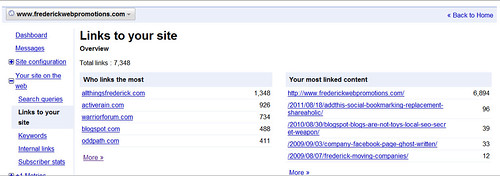Once upon a time, writing the ideal article from an SEO perspective was a simple matter. Back then SEO was based almost entirely on keyphrases, and the best way to make sure that Google noticed your article and indexed it the way you wanted it to was to include the right number of keyphrases for the amount of content you had. Putting those keyphrases at the top of your page, and at the bottom, and making sure that you used headings with them in were other good tips, but other than that it was really that straightforward.
Then came the much maligned Google Penguin and Google Panda. These two big algorithm updates left us with a Google that was much smarter and much more ruthless, and that could sniff out attempts to stuff keywords from a mile away. Google always said that we should be writing for the visitors and not for the search engines, but now they really meant it – and attempts to do otherwise would result in poor results and potentially even de-indexing.
So in this new climate, how do you go about writing an article that Google will really like? Sure your content should be aimed primarily at your readers, but Google is a program that uses an algorithm to rank your site so there must still be boxes you can tick to increase your chances of ranking well right? While those factors might be a little more subtle and a little less clear cut than they once were, they certainly do still exist and you certainly can still create content in a Google friendly way that also satisfies your visitors. Here we will look at the crucial things you need to consider.
Length
Size isn’t everything, but countless blogs have reported that their longer articles seem to perform better in a post Penguin world than their shorter ones, and just looking around you will tend to notice that the more successful sites and blogs feature more 700-800 word posts rather than 500 word ones. Not only does this increase the chances of Google finding long-tail keyphrases, but it also suggests that you are providing more in-depth information in your content, and nicely distances you from content farms which tend to have a 300-500 word limit in their terms.
Long content then makes sense from Google’s point of view, and for your readers it means you can provide more detailed information than the shorter content your rivals use, so aim for 700 words+ if you want to improve your SEO. Make sure that your article stays accessible though by breaking it up with headings and by including lots of images.
Links

There was a time that no one would ever link to another site without including a no-follow tag for fear of wasting their ‘link juice’. Now though Google has stated that they appreciate links out to other high-authority sites that can provide more information relevant to your discussion. Not only does this help Google to index, but it also shows that you’ve researched and gives the reader the option of looking for more supplementary information to continue their reading and verify what you’ve said.
Being Unique
Google has always clamped down on stolen and duplicate content, but now it’s more important than ever to be unique. This means unique not only in terms of the wording you’re using, but also in terms of the information you’re conveying. Re-writing the same content with entirely new wording isn’t enough – Google wants to see you bring new points of views and new angles to popular topics so make sure you’re using ‘I’ a lot, and find a way to differentiate your writing from everyone else’s. This kind of writing is much more likely to get shared too.
Vocabulary

‘Semantic search’ is a popular buzzword over at Google and it refers to the ability of search engines to understand the ‘meaning’ behind a search term rather than just looking for the exact sequence of words. This is part of the reason that keywords are out (really, they’re out – so stop stuffing them right now), but it also mean that Google will be looking for synonyms and related terms on your site. Use your big words then, and write around the topic in a natural way that indicates to Google – and your readers – what you’re writing about without cramming it down their throats.
About the Author: Thanks to John Crenshaw for today’s article contribution. John runs a http://www.rlmseo.com/”> Cincinnati SEO company called Razorlight Media. If you’d like to learn more about what Razorlight Media have to offer, please visit their official website at rlmseo.com



